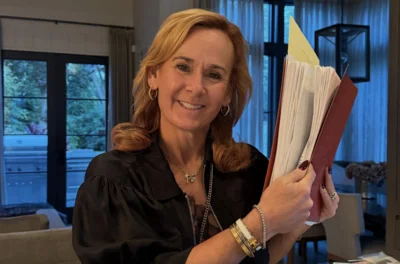Wheaton CUSD 200 is spending more than $17,000 per student on "preschool" for four year olds. | ReallyGoodStuff.com
Wheaton CUSD 200 is spending more than $17,000 per student on "preschool" for four year olds. | ReallyGoodStuff.com
Taxpayers will spend more than $17,000 per year, per child to fund a government-run "preschool" program in Wheaton, serving 4-year-olds, according to state records obtained by DuPage Policy Journal.
Wheaton-Warrenville School District 200 requested and will receive $688,798 per year from state taxpayers-- $17,220 per student-- for its 40-child "Preschool Development Grant Expansion" program.
The funding is significantly higher than rival pre-school programs-- eight times the tuition of District 200's four-day a week, half-day pre-school program ($2,205), and nine times what it costs to attend private preschool at First Presbyterian Church of Wheaton ($1,890).

Stephanie Farrelly is principal at Jefferson Early Childhood Center in Wheaton, where they spend more than $17,000 per year on four year old preschool
| CUSD 200
To be sure, Wheaton's pre-school program costs 40 percent more than tuition and fees at Illinois State University, which will run $12,353 for 2018-19, according to the school's website.
The program, 6.25 hours daily, running 165 days per year, is administered by the staff of Jefferson Early Childhood Center (JECC) in Wheaton, led by Principal Stephanie Farrelly of Geneva.
Farrelly earned $143,216 in 2017, according to the district's salary and benefits report.
"Positive returns for... children"?
Illinois population may be shrinking, but taxpayer funding for preschool is rising.
State budget documents show taxpayers will spend approximately $1 billion on subsidized child care this year and another $493 million on state-funded preschool, or $325 per household.
That's a 71 percent increase in preschool funding, from $292 million in 2014.
Wheaton's program, which started in 2015 at $11,579 per child, will see a 49 percent increase when the new, higher state funding kicks in.
DuPage Policy Journal has confirmed the program will still serve 40 students. District 200 officials have not publicly indicated why they increased their preschool budget so sharply.
It previously was funded by a grant from the U.S. Department of Health and Human Services under President Barack Obama's "Preschool for All" program, which is winding down. Records show state taxpayers are being asked to cover half of its total cost for this school year-- $231,599-- and the full amount moving forward.
The program is operated by Metropolitan Family Services of Chicago (MFS), a non-profit that received $29.5 million in government grants in 2017.
Ricardo Estrada, CEO of MFS, advocated publicly for the program in 2013, writing in a letter to the Chicago Tribune that programs like Obama's have been "proven to generate positive returns for children, families, communities and the economy."
Estrada didn't mention, however, how much of that funding MFS expected to receive from Obama's program.
Nor did District 200 leaders initiate a public debate over the effectiveness of government-funded preschool, criticized by some as merely dressed-up babysitting.
"The federal government has no constitutional authority to enact a universal preschool program," wrote the libertarian Cato Institute. "Even if it did, the research does not support making such a huge financial investment in a program that is likely to produce little or no return. Moreover, because federal grants usually flow through state education agencies, they tend to fund programs that are housed in existing school facilities that are intended for older students and are unsuitable for 3- and 4-year-olds. By crowding out better-suited alternatives, government subsidies for preschool may actually make things worse."
Ron Haskins, who studies preschool at the left-leaning Brookings Institute, also believes it is a "very bad idea," writing that "children who participated in a statewide pre-K program in Tennessee had worse attitudes toward school, poorer work habits, and lower test scores by the time they reached third grade than children who did not attend the program."
Other states that have universal, government-funded preschool have also seen disappointing results, studies show.
In Georgia, an evaluation of the program by Georgia State University found that, by the end of first grade, children attending preschool had skills similar to those who did not.
In Oklahoma, like Tennessee, test scores have actually declined since universal preschool was implemented.






 Alerts Sign-up
Alerts Sign-up